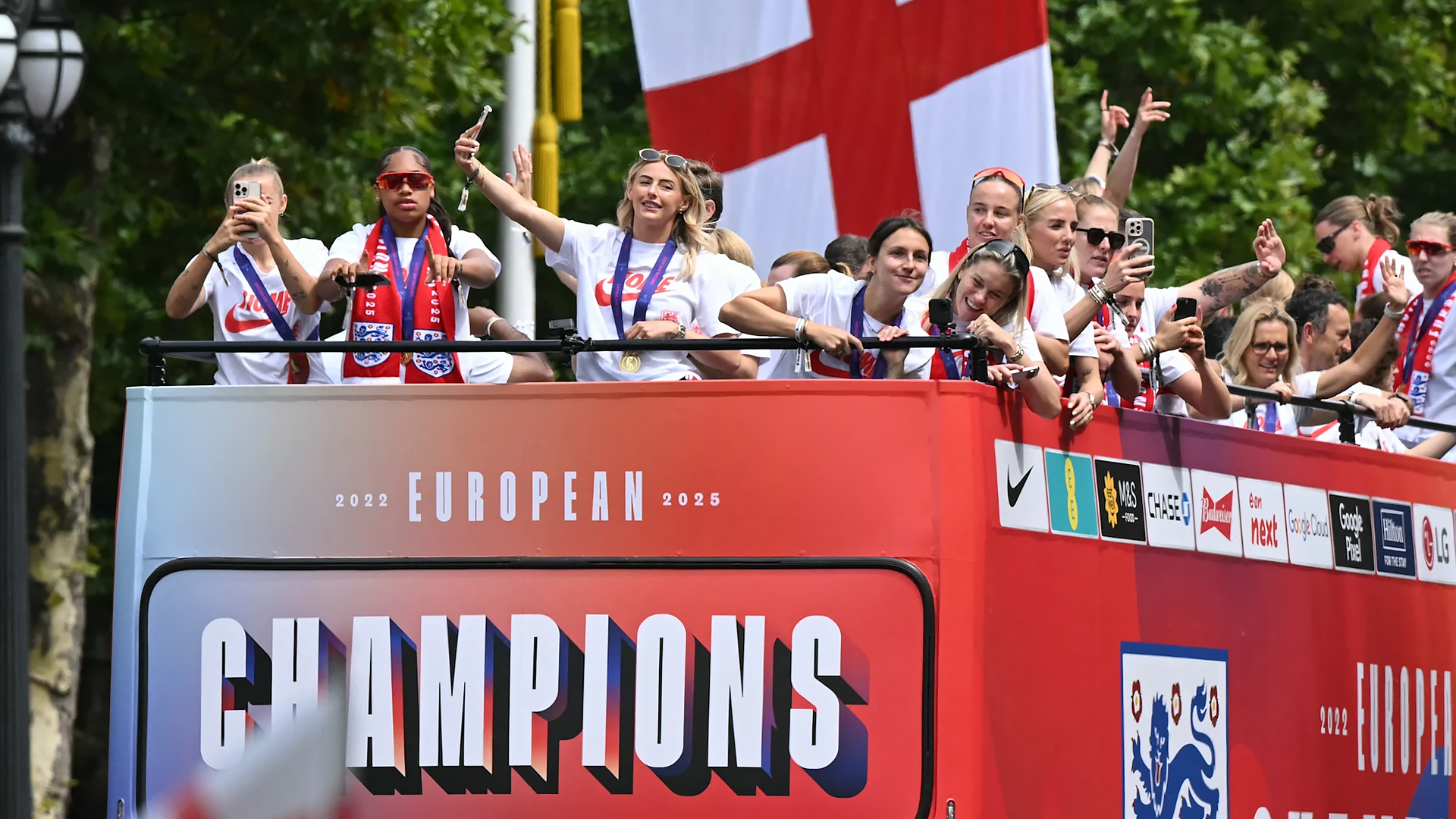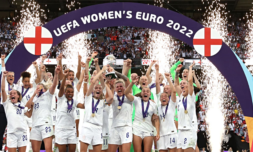There’s a stark contrast in the way we respond to female versus male sporting victory. It’s time we asked ourselves why.
When England’s Lionesses clinched a historic back-to-back UEFA Women’s Euro title with their 2-1 victory over Spain on Sunday, celebrations erupted across the country.
Fans flocked to Trafalgar Square, brands rushed to post congratulatory graphics, and news channels cleared their schedules to show the game live on not one, but two major networks.
The final ended in a tense penalty shootout – a nail biting clincher that had become somewhat of a theme for the Lionesses over the course of the tournament. It was also watched by over 16 million people nationwide, making it the most watched TV event of 2025 thus far.
But when Monday morning rolled around, the nation collectively groaned. Despite a major international tournament win, the government refused to grant the public a national day off.
It might sound silly to demand compensation for a sporting event. But you can’t blame us given the government has been dangling the notion of a football-induced bank holiday in front of our noses for years now.
The only problem is, this always promised, never fulfilled day off is only ever suggested in the context of the men’s national team winning a major tournament.
Following the England men’s team’s advance to the Euro 2020 final, Boris Johnson’s administration made it abundantly clear that a bank holiday would be granted if Gareth Southgate’s squad won. They didn’t, but the promise of institutional recognition was there.
And again in 2024, when England reached the finals once again, Kier Starmer alluded to a lie-in for the nation’s workers come Monday morning. But alas, we lost the game.
Downing Street confirms there won’t be a bank holiday to mark the Lionesses’ euros win, although there will be “celebrations”.
PM’s spox: “If we had a bank holiday every time the Lionesses win, we would never go to work.”
— Pippa Crerar (@PippaCrerar) July 28, 2025
Despite the England Lionesses doing more for the country’s football than the men’s team ever have – this is their second consecutive Euro win, following a historic World Cup performance in which they lost to Spain in the 2023 final – there’s radio silence in the wake of their Sunday night glory, at least where bank holidays are concerned.
The government has put this down to the reported £2.4bn a national day off would allegedly cost the country. But given the fanfare that follows a loss by the men’s team, this sudden pivot raises important questions around our gendered attitudes towards sporting achievement.
To understand the implications of this discrepancy, we need to think beyond football. At risk of politicising everything, the issue isn’t really about a lie-in or an extra trip to the pub; it’s about how we value women’s achievements at a societal level.
Many employers – perhaps sensing the hypocrisy – have independently offered staff late starts or time off in recognition of the Lionesses’ triumph. Workers have taken to LinkedIn to share their company’s stance on reduced working hours and reflected on the shifts between employer attitudes towards the men’s versus women’s Euros.
‘I’m pretty sure we were in the minority when it came to offering a late start to all employees after the Lionesses made it to the EURO final,’ wrote Hannah Anderson, Social Media Director at NewGen.





















